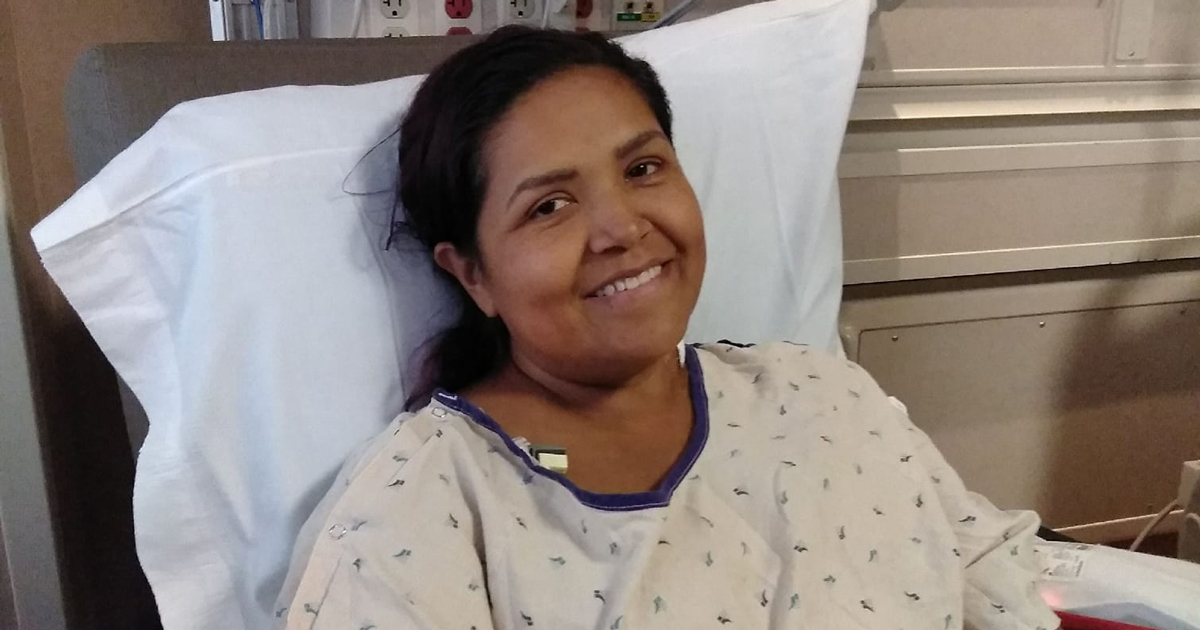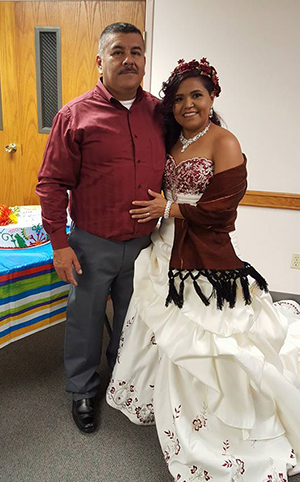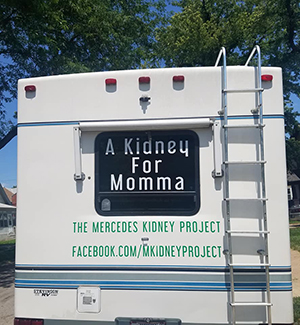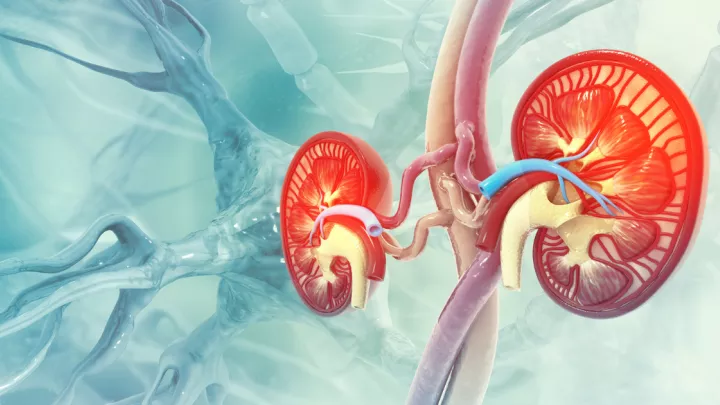Sharing the legacy of organ donation

As a little girl, Mercedes Aguilar could never have imagined the journey her health would take her on and how that would shape the person she is today. She says, "I used to ask myself what my purpose in life was. I know now that it is to spread the word about organ donation until my dying day."
She recalls having her first migraine headache in 5th grade. The migraines continued for years, accompanied by bladder infections, back pain, high blood pressure and more. Mercedes often missed school and didn't feel well enough to participate in activities.
Many doctors examined her, but it wasn't until she was in her 20s, and a month before her wedding, that Mercedes was finally diagnosed with a genetic disease. By that point, she had foregone a full-ride scholarship to a college in Chicago. The diagnosis was a double-edged sword. Mercedes was relieved to finally understand her condition but devastated by the reality of the situation.
"You can't marry me," she told her fiancé, Alex. Mercedes didn't want to burden him with her failing health. Her kidney was only functioning at 10% – someday, she'd need a transplant.
But Alex persisted. "I don't care about the wedding, but I want to marry you," he told her. "In sickness and in health, I want to be with you."

Alex and Mercedes were married on Oct. 17, 1992. Less than a year later, they found out Mercedes was pregnant. Again, the news came with mixed emotions. The couple was excited to welcome a child into their family, but her doctors had warned her against getting pregnant. They told Mercedes that her body could not handle the stress of the pregnancy.
But Mercedes held tight to her faith. At 28 weeks, she delivered a 1 pounds 14 ounces miracle named Estefania. The pregnancy took its toll on Mercedes' body. But with diet and medication, she was able to manage her symptoms until 1997.
She began dialysis for the first time then. The treatment is a gift for end-stage renal disease patients like her. But it didn't come without hardship. While on dialysis, Mercedes always felt sick to her stomach. She had to limit her fluid intake, and the rigidity of the treatment schedule meant she often missed special events. She admits it was hard but worth it.
"Nothing replaces a real kidney," she says, "but that machine gave me life while I waited."
Two years later, some of her brothers surprised her by being tested to be living donors. Her older brother, Gerardo, was a match. "He gave me so much time," Mercedes says. "I used it to its ultimate purpose."
She felt better almost immediately after her transplant. Her blood pressure returned to normal; her other symptoms subsided. She finally got the opportunity to attend college and became the first woman in her family to graduate. She had a second daughter, Aleah, at age 40. But after 11 wonderful years of normalcy, her body began to reject her brother's kidney.
Mercedes waited eight years for another one. During that time, she had a heart attack and was in and out of the hospital. But she never doubted that a kidney would eventually come her way. Her husband Alex put decals on their vehicles that said, "My Wife Needs a Kidney." They even bought an RV to travel on the weekends and educate the public about organ donation.

"I had a lot of faith. Never did I ask ‘why me," she says. "I always said, ‘Lord, just please give me the strength to keep fighting.'"
She was blessed with that strength, and eventually, a second transplant. "The Nebraska Medicine doctors were awesome," Mercedes says. "They care so much. I didn't have a question that the nephrologists couldn't answer. Even before I have the question, they're ready for it."
She says donation has given her many things, but most importantly, quality of life. She has the energy to be active with her daughters. She can help take care of her mother and love on her nieces and nephews.
Coming from a large Hispanic family, organ donation was a taboo subject growing up. When she was a teenager, Mercedes recalls asking her mother if she would ever consider being an organ donor. "Of course not," her mother said. "We don't talk about that. We don't talk about stuff like that." Mercedes says topics of death and dying were not discussed in Hispanic families. Many people believed if you spoke of it, it would happen.
As much as her community shied away from the topic of donation, they were there to support and lift her up through all her struggles. Mercedes says it's her culture's sense of openness and togetherness that have also allowed her to share her story, connect with others facing a similar experience, and ultimately, change hearts and minds.
"Everywhere I go, you will find me talking to people about my transplants," says Mercedes. "Organ donation is the best way to leave your legacy."
You too can make a difference in someone's life. Find out how to become a living donor.
Written in partnership with Live On Nebraska. To learn more about organ donation, visit LiveOnNebraska.org.





